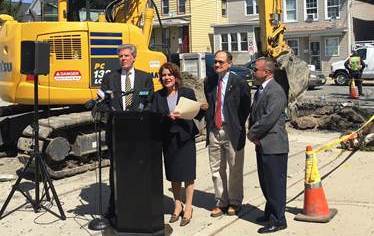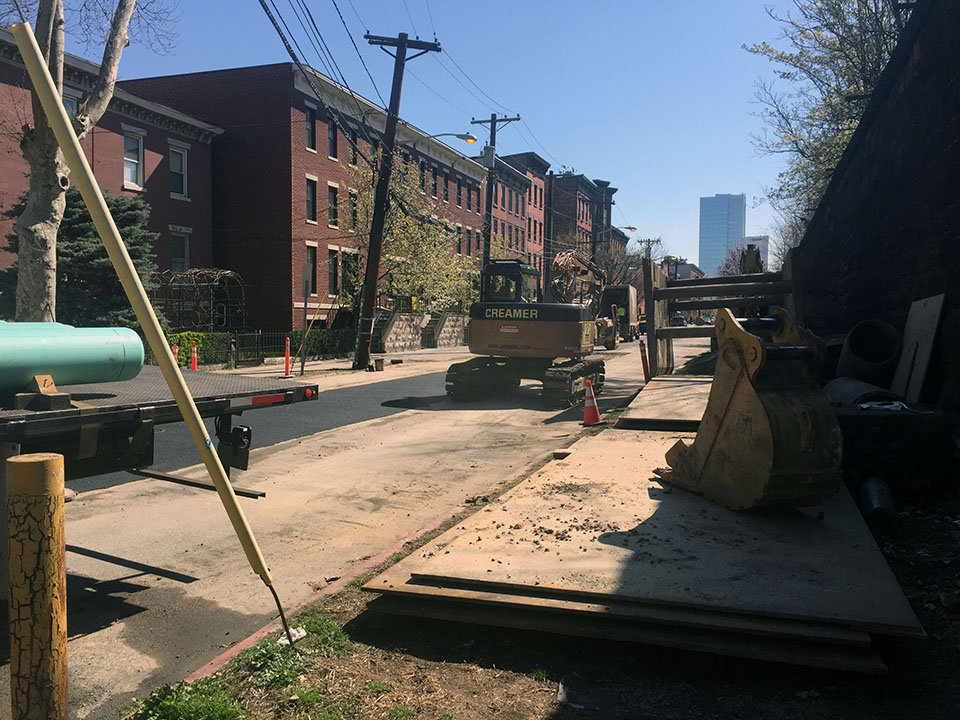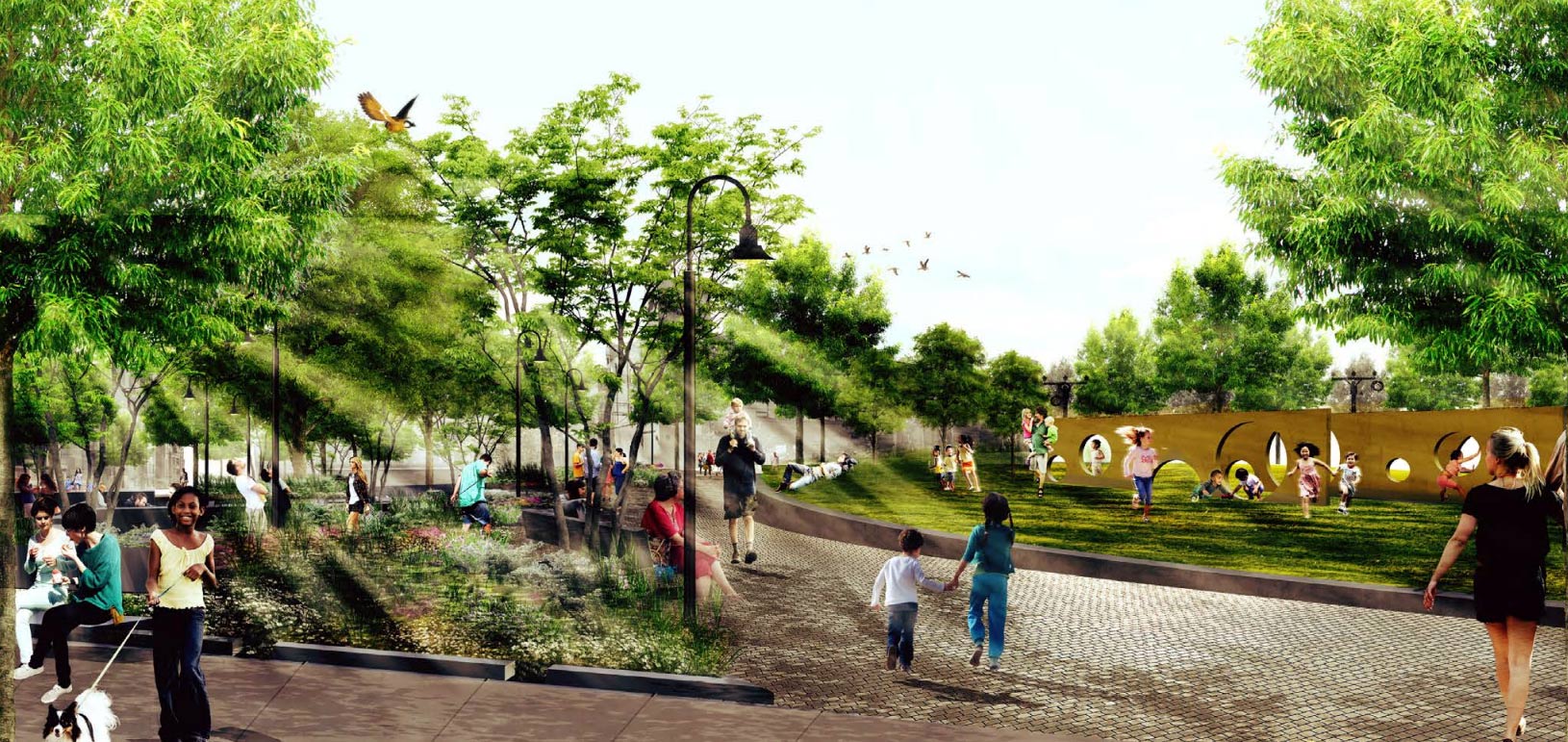Chipping Away: Water Infrastructure Improvements Improve Health, Safety & Quality of Life
Visible infrastructure, such as roads, bridges, railroads, ports, airports, the power grid, and even broadband, are vital to our everyday life and support our health, safety, and the economy. Just as vital, if not more so, is the less obvious water infrastructure, such as the pipes underground that provide us with drinking water and the sewers that carry our waste away. However, the maintenance and upkeep of water infrastructure has been neglected to a large degree. The resulting problems, which include lead in drinking water, leaking pipes, sewer and water main breaks and sewer overflows, require $8 billion worth of drinking water upgrades and $32.5 billion for wastewater infrastructure in New Jersey over the next 20 years, according to estimates from the U.S. Environmental Protection Agency. To encourage these investments, Jersey Water Works is participating in Infrastructure Week 2016 by highlighting three major new infrastructure projects in Perth Amboy, Jersey City, and Hoboken. Jersey Water Works is a cross-sector collaborative focused on transforming New Jersey’s inadequate urban water infrastructure by investing in sustainable, cost-effective solutions focused on investing in sustainable, cost-effective solutions to the problem of aging water infrastructure in New Jersey.
 Perth Amboy Replaces Drinking Water Main
Perth Amboy Replaces Drinking Water Main
On April 18, 2016, Perth Amboy Mayor Wilda Diaz, Utility Service Affiliates Superintendent Luis Perez Jimenez, and U.S. Congressman Frank Pallone spoke on-site about the infrastructure project in Perth Amboy and highlighted the importance of water infrastructure. Perth Amboy is spending $1.5 million to replace one mile of four-inch cast-iron drinking water main with a larger, more advanced line. For this investment, Perth Amboy residents will enjoy more reliable water delivery, fewer leaks, and less likelihood of catastrophic breaks. This investment represents approximately one-third of Perth Amboy’s needed drinking-water investment.
“Perth Amboy is proactive about the safety of the public. Especially, as we’re already working with Rutgers and NJDEP to implement green infrastructure to help maintain its current water substructure. These improvements are essential to the economic growth of our City and to ensuring that our citizens will continue to receive high-quality drinking water,” said Mayor Wilda Diaz.
Jersey City to Spend Almost $94 Million on “Gray” Water Infrastructure

On April 13, 2016, Jersey City Mayor Steven M. Fulop announced that the city’s Municipal Utilities Authority will invest $94 million this year and in 2017 on improvements to city water and sewer utilities. For 2016, $45 million will be spent, including the repair or replacement of 28,500 feet of sewer pipe throughout the city identified as most in need of repair. For 2016 and into 2017, $49 million will be spent for projects ranging from cleaning and lining 18,800 feet of water mains, the replacement of 30 large valves, and replacing 20,000 feet of water mains in the downtown area. These improvements help ensure quality drinking water and wastewater services reach Jersey City citizens and also contribute to the city’s growth.
“Like other urban centers around the country, much of our city infrastructure is more than 100 years old, which is why we have made upgrading these critical systems a priority,” Mayor Steve Fulop said in a quoted statement. “We are investing significantly on both our sewer and water lines citywide, as strengthening infrastructure is a vital part of our continued growth.”
Hoboken’s Gray and Green Infrastructure Improvements Go Hand-in-Hand

On March 4, 2016, the Hoboken City Council voted to advance three crucial city projects by approving low-interest financing from the New Jersey Environmental Infrastructure Trust with 19-percent principal forgiveness, to fund drainage improvements and replacement of water mains along Washington Street, construct the Southwest Resiliency Park, and acquire six acres of property and create the design for the Northwest Resiliency Park. Water main replacement will prevent the loss of clean water from water main breaks, a frequent occurrence in Hoboken. The latter two projects will capture stormwater and alleviate flooding using green infrastructure methods, such as rain gardens, bio swales, and tree planters, which mimic nature by allowing rain to trickle into the ground rather than going down the drain. These methods benefit residents by reducing the amount of water entering the city’s combined sewer system, lessening the likelihood of flooding and providing green space and parks that can improve quality of life.
“Hoboken is investing tens of millions of dollars to upgrade our water infrastructure to deliver reliable water service, reduce flooding, and improve our environment,” said Hoboken Mayor Dawn Zimmer. “Not only are we upgrading century-old water mains and constructing a new flood pump, but we are investing in our citizens’ quality of life by providing much-needed open space and flood mitigation by incorporating green infrastructure as an integral part of the design of our new parks.”
While these projects are a start, New Jersey has a long way to go in terms of addressing its water infrastructure needs. Underinvestment and a lack of urgency have created a massive backlog of repair and expansion projects nationwide. During infrastructure week, Jersey Water Works is joining organizations across the country to recognize progress and leadership at the federal, state and local levels, including celebrating these important steps in Perth Amboy, Jersey City and Hoboken.